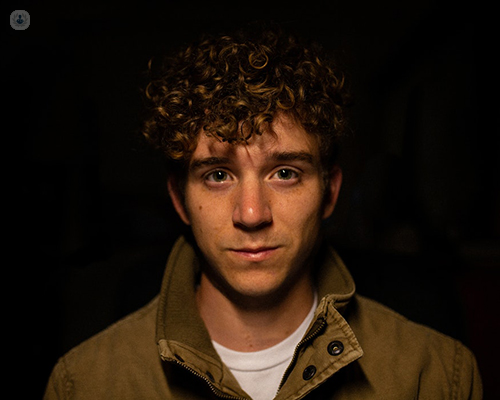What are the main symptoms of psychosis?
Escrito por:The symptoms of psychosis depend on which kind of the condition that the patient has. We’ve asked expert psychiatrist Dr Lars Davidsson to discuss the commonest types that he sees in his clinic: schizophrenia and drug-induced psychosis.

What are the symptoms of psychosis?
The symptoms of schizophrenia may include hearing voices, feelings of paranoia, fear of your thoughts, and negative feelings of meaningless. The patient is not looking after themselves with their daily routine also, such as eating or sleeping regularly.
The symptoms of drug-induced psychosis, which occurs from excessive cocaine, cannabis or amphetamine usage, include paranoia and feeling that people are after you. These usually go away in a day or two when the drugs wear off.
Other types of psychosis include depressive psychosis where someone who is severely depressed believes that everyone hates them. They have thoughts such as ‘the world would be much better off without me if I didn’t live anymore’.
What are the causes?
We don’t know the exact causes with schizophrenia except that there is a genetic background as it runs in families. There are things that can trigger it as the patient doesn’t necessarily inherit the illness, but inherits the development because they are more sensitive than others.
With drug-induced psychosis, taking drugs (especially cannabis) triggers it and it is therefore disposed to cannabis smoking. The amount of drugs it takes to trigger the psychosis depends on the individual’s response.
Can psychosis affect any age group?
The onset of psychosis occurs when people are young most of the time, which is in under 20-year-olds.
What can trigger psychosis?
It used to be falling in love and the relationship not working out or failing an exam but these reasons seem less so now. The most common cause is someone taking cocaine, cannabis and amphetamines.
How is psychosis treated?
Psychosis is treated with a combination of medication and therapies. Anti-psychotic medication can reduce symptoms so that the patient no longer hears voices, sees delusions or suffers from negativity. This is combined with various types of psychotherapy such as cognitive behavioural therapy (CBT), which is the most common form. Patients need various kinds of support. Following a drug-induced psychosis, some people have to go to rehab to improve their skills and education.
How long does someone need to take medication to treat psychosis?
It depends. For someone who has experienced their first episode, we try to get them to come off of their medication. For someone who has had many episodes, we cannot say for the foreseeable future as we cannot predict what will happen.
Do not hesitate to contact Dr Davidsson if you're concerned about your mental wellbeing.


